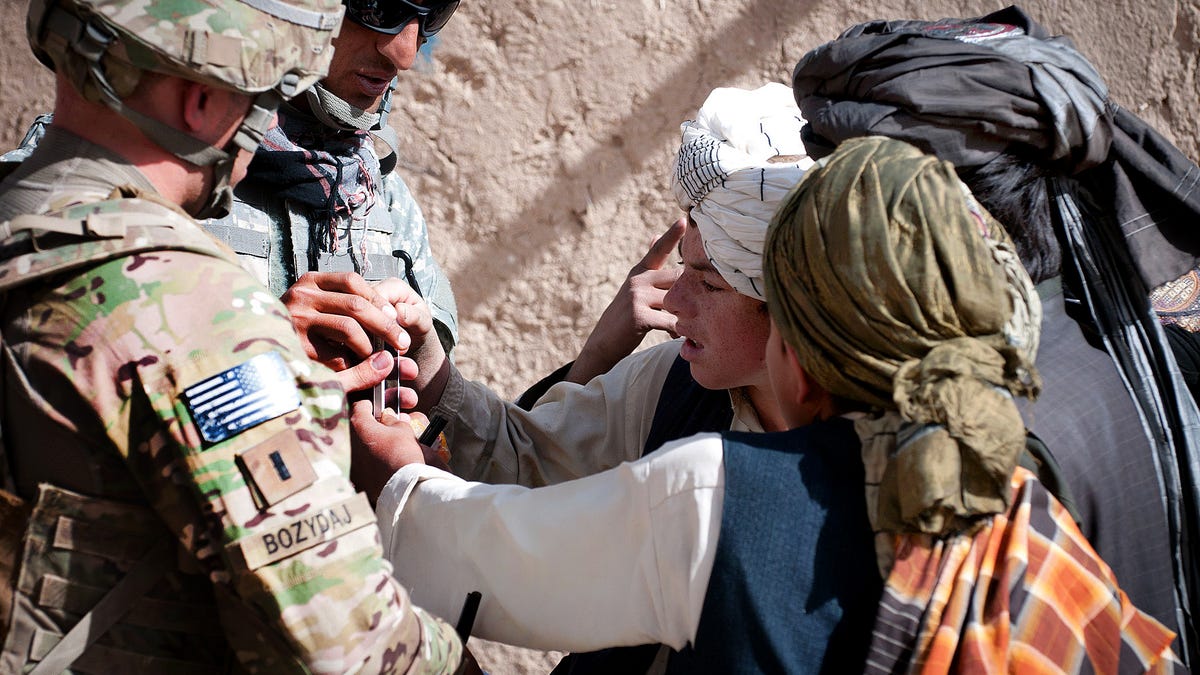Apple iOS 6 devices get nod for U.S. military use
The Defense Department will be allowed to distribute iPhones and iPads with Apple's iOS 6 to employees, though that doesn't guarantee Apple will actually receive contracts.

The U.S. Defense Information Systems Agency (DISA) has approved the use of Apple
That means the DOD can provide iPhones and
"It doesn't mean [Apple is] getting a contract with us or anything like that," DISA spokeswoman Alana Johnson said. "It just means that specific operating system, Apple iOS 6, is approved as long as they have that particular operating system."
Samsung and BlackBerry received security clearance earlier this month. The nod from the Pentagon means that iOS 6 devices, Galaxy S4, and BlackBerry 10 devices can be used by U.S. government and military departments that tap into the Department of Defense networks. Access to these networks requires high security standards and could clear the way for lucrative contracts with the government.
BlackBerry has long been the handset provider of choice for the U.S. government, but the Defense Department late last year said it was opening its exclusive contract with the Canadian company to other device makers. At the time, the Pentagon said it would still use "large numbers" of BlackBerry smartphones but that it would also ask other companies to apply for a government contract to provide software that is capable of monitoring, managing, and enforcing U.S. military security requirements.
DISA is responsible for establishing a mobile device management system for the DOD, and it expects to award contracts to companies in early summer. Actual orders will be tied to identification of specific operational requirements and available funding, DISA said.
The DOD currently has more than 600,000 commercial mobile devices in operational and pilot use, including 470,000 BlackBerrys, 41,000 Apple devices, and 8,700 Android devices.
DISA's Johnson told CNET that the Defense Department is working with handset vendors to clear their devices for use before they even hit the market. The Galaxy S4, for example, went through the DOD Security Technical Implementation Guide, or STIG, approval process before Samsung's Knox security software was publicly available. Approval of the STIG ensures the device has met the security standards required for the DOD.
"We're changing the process," she said. "It used to be a device comes out, and we would then have to provide and rate the STIG. By the time it got approved, it was six months later and on to the next greatest thing....Now through some new processing in how we do it, we're meeting with the vendors before starting the process....So by the time it meets the market, we're right there with them."
Johnson said DISA and the DOD will look at working with other mobile device makers, as well, to give military members as many options possible. It wants to create a "device agnostic environment," she said.
"We're not going to tell anybody they have to use this device," she said. "They should be able to go out and use the device that meets the particular needs for their mission."
Updated at 8:40 a.m. PT with additional comments and background information.

